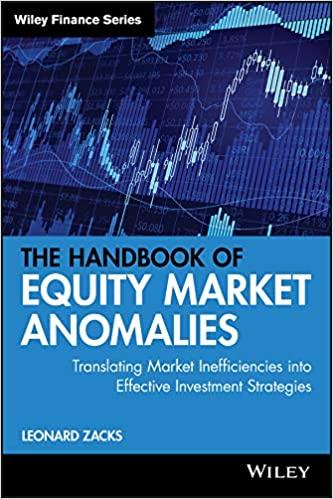Question
A-Rod Manufacturing Company is trying to calculate its cost of capital for use in making a capital budgeting decision. Mr. Jeter, the vice-president of finance,
A-Rod Manufacturing Company is trying to calculate its cost of capital for use in making a capital budgeting decision. Mr. Jeter, the vice-president of finance, has given you the following information and has asked you to compute the weighted average cost of capital.
The company currently has outstanding a bond with a 9.9 percent coupon rate and another bond with an 7.5 percent rate. The firm has been informed by its investment banker that bonds of equal risk and credit rating are now selling to yield 10.8 percent. The common stock has a price of $53 and an expected dividend (D1) of $1.73 per share. The historical growth pattern (g) for dividends is as follows:
1.28
1.42
1.57
1.73
The preferred stock is selling at $73 per share and pays a dividend of $6.90 per share. The corporate tax rate is 30 percent. The flotation cost is 2.0 percent of the selling price for preferred stock. The optimum capital structure for the firm is 30 percent debt, 10 percent preferred stock, and 60 percent common equity in the form of retained earnings.
(A)
Compute the historical growth rate. (Round your intermediate calculations to 2 decimal places and final answer to the nearest whole percent. Omit the "%" sign in your response.)
Growth rate %
(B)
Compute the cost of capital for the individual components in the capital structure. (Round growth rate to nearest whole percent. Round your answers to 2 decimal places. Omit the "%" sign in your response.)
Weighted Cost
Debt (Kd) %
Preferred stock (Kp)
Common equity (Ke)
(C)
Calculate the weighted cost of each source of capital and the weighted average cost of capital. (Round your intermediate calculations and final answers to 2 decimal places. Omit the "%" sign in your response.)
Weighted cost
Debt (Kd) %
Preferred stock (Kp)
Common equity (Ke)
Weighted average cost of capital (Ka) %
Step by Step Solution
There are 3 Steps involved in it
Step: 1

Get Instant Access to Expert-Tailored Solutions
See step-by-step solutions with expert insights and AI powered tools for academic success
Step: 2

Step: 3

Ace Your Homework with AI
Get the answers you need in no time with our AI-driven, step-by-step assistance
Get Started


